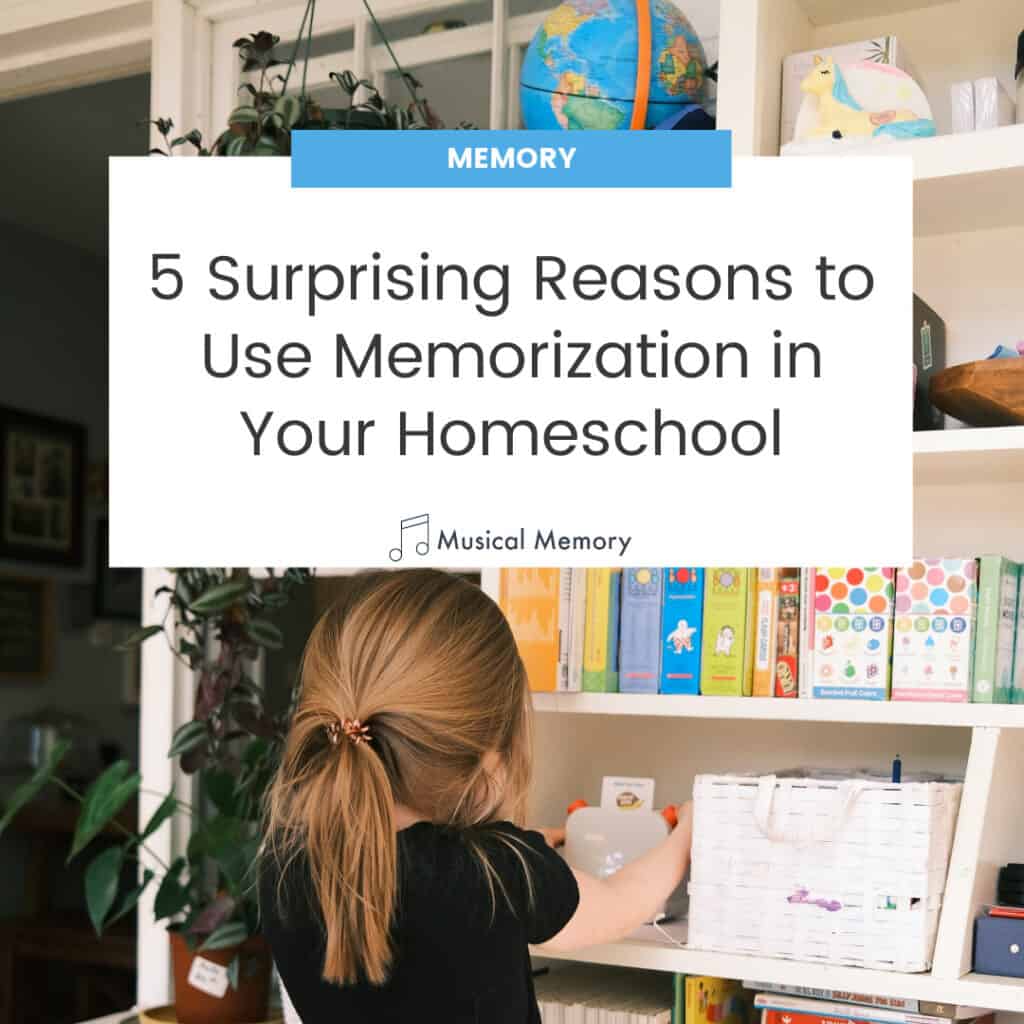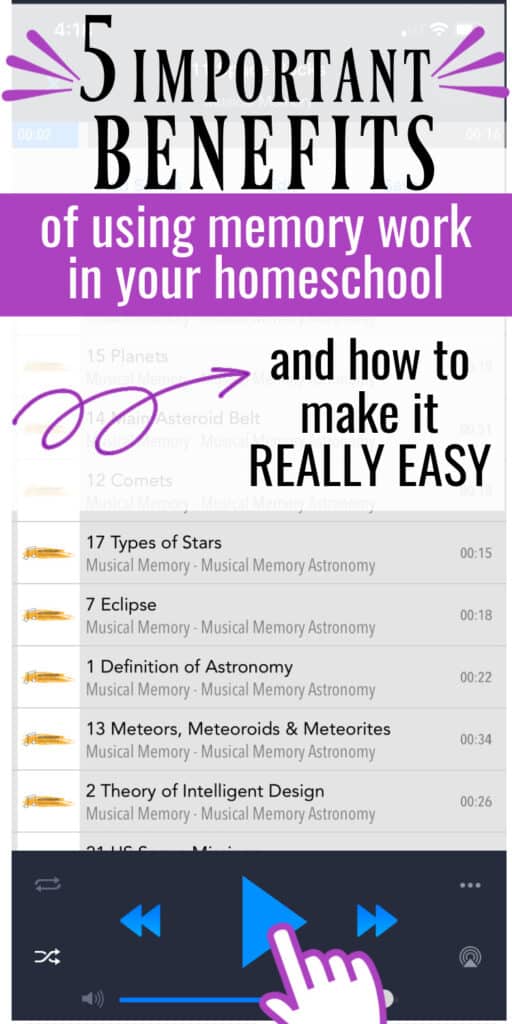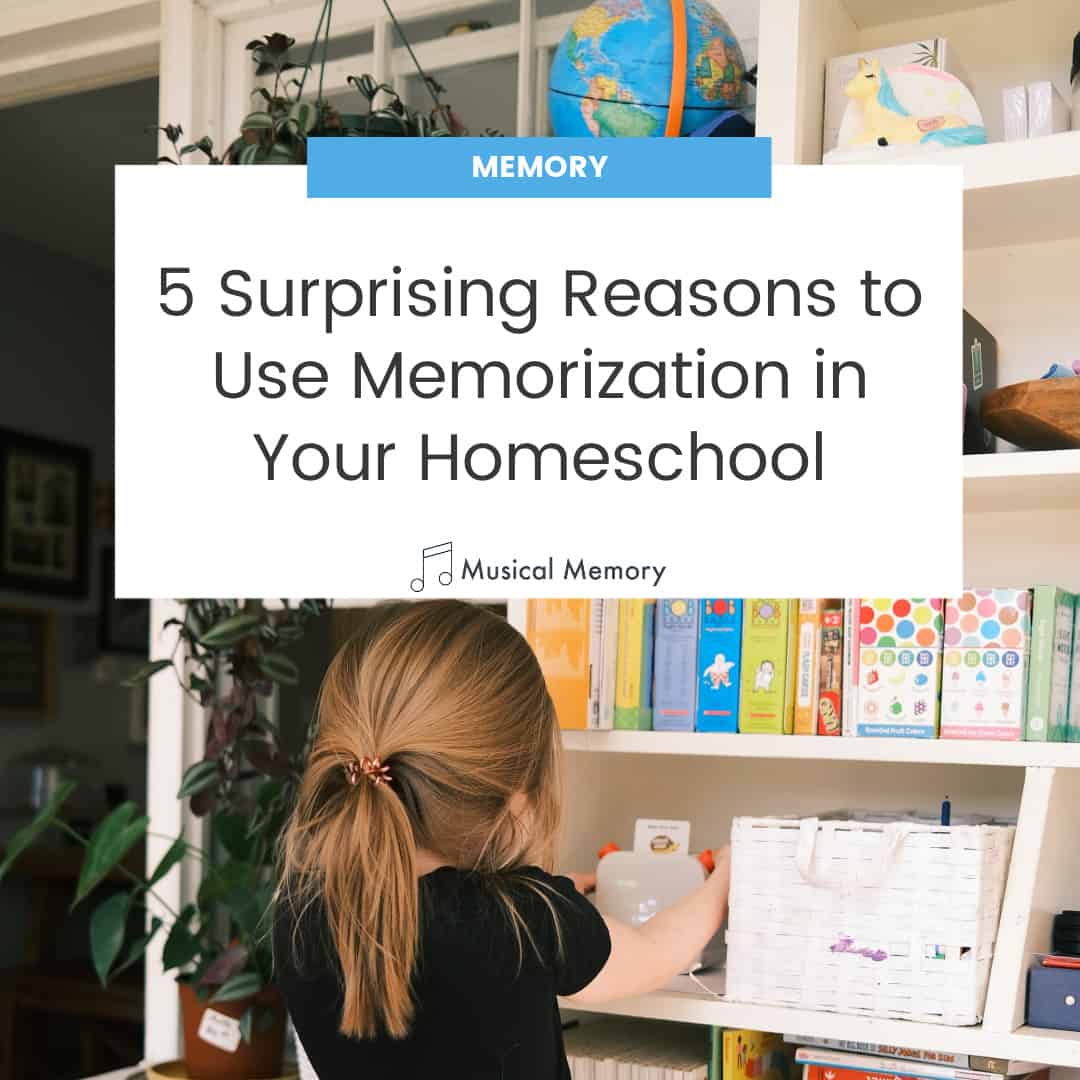If you want to master calculus, you have to understand basic math first.
If you want to be a brain surgeon, you have to take Biology 101.
If you want to be a concert pianist, you have to be able to find middle C & play your scales.
Learning the fundamentals is the first step to mastering anything. This principle applies to every learner, regardless of age, qualifications & previous education. If you want to learn something new, you start at the beginning.

Poll Parrots & Copy Cats
Dorothy Sayers, an author in the early 20th century, noticed that young children are particularly adept at memorizing, and referred to the elementary ages of learning as the “poll parrot stage.” (Or as my kids call it, being a copy cat.)
Sayers suggested that since young children seem to mimic everything they hear & remember it so easily, why not capitalize on this innate ability & have memorize the fundamentals of subjects before they really understand them.
Then, as they get older and start to ask questions about how things work, the lightbulbs will go off as kids make connections between what they’ve already memorized & new information they learn.
It may sound backwards at first, but if you think about it, this imitation is how young children process the world & learn to speak too. They listen for 1-2 years as infants before they start speaking and then they start repeating everything they hear, down to mimicking your very tone!!
(Does anyone else ever hear your little ones repeat the same exact frustrated groan noise Mom makes? No? Just me…?)
Young children also love hearing the same thing over and over again – their favorite songs, movie lines, books. “Just one more time, pleeeeease?!” So, they don’t get tired of repetition to memorize. (Whereas older students dread the monotonous task of repetition in an effort to memorize things for tests.)
Okay, but just because kids are good at it, doesn’t mean it’s valuable!
True. Here are 5 interesting benefits to memorization. I’ve been so surprised by what a fun & important part of our homeschool memory work has become.
1. Memorizing Enhances Critical Thinking
Memory Work is quite popular with a lot of homeschool families. Some memorize just poetry or scripture, others use entire curriculums for it.
Rote memorization often gets a bad rap as the evil old-fashioned way of learning. Why memorize it when you can look it up? Why memorize something when you can just learn to “think critically” about things?
The problem with that approach is – memorization doesn’t prohibit critical thinking, it enhances critical thinking.
As young children memorize, even if they don’t totally understand what they’re learning at the time, their brains start to form proverbial file folders of all this seemingly random information. Then, when a child hears the information memorized long ago, the brain yanks it out of the file and starts making valuable connections.
Here’s a great example of this in practice.
One day, we were sitting around our kitchen table and my 6 year old said, “There are 48 window squares on those windows.”

I replied, “Oh, I hadn’t thought about that. Were you counting them for a while?”
6 yo: “Nope! I counted by 12s – 12, 24, 36, 48!”
Then, she clarified: “Well, I tried counting by 3s for the little parts but I got to 12 and then they were all 12. So that was faster.”
You see, we’d been singing and memorizing skip counting songs for a few months. At some point during a math lesson, we connected some dots by learning about how to trade pennies for dimes and count dimes by 10s. That was the first real hands on skip counting we’d done.
During that lesson, she asked, “Well can we count pennies by 3s? 4s? All the other skip counting songs?” Her brain was making connections between the rote skip counting songs she’d learned & the concept of hands on skip counting.
She started noticing groups of objects that could be counted this way everywhere we went.
- The windows near the breakfast table.
- How many slices of bread for the amount of people you’re making a sandwich for.
- How many pizzas if there are 6 people who want 2 slices each and 8 slices per pizza.
- Counting money – nickels (5’s), dimes (10’s), quarters (25’s), bills (various)
At the age of 6, she had a major ‘ah ha’ about grouping, the precursor to multiplication. And I had a major ‘ah ha’ that memorization really does have benefits for deeper understanding.
2. Capitalize on Kiddos’ Super Memorizing Powers
Though the field of neuroscience has exploded in recent decades, you probably don’t need to read too many research based articles to be convinced that kids memorize things so quickly & easily.
We all know how easy it was to pick up a new poem or commercial jingle or song when we were 6. When you’re 30, 40, or 50, it takes a bit more effort to put things into your longterm memory.
During the grammar stage, it makes sense to capitalize on young children’s natural ability to memorize & their curiosity.
By using songs & chants to memorize a handful of the fundamental rules for basic subjects, you are preparing your kids for a life time of making deeper connections & enhanced critical thinking.
3. Brain Training
Another key benefit of using memorization is brain training.
Our brain is wired to constantly be learning & acquiring new information. Neuroscience has now proven that if you stop learning new stuff, your brain will physically deteriorate. On the flip side, your brain grows physically stronger as it learns new information.
Our brain delights in understanding things & making connections. The more we see the same information from a variety of angles & experiences, the more neural pathways the brain creates to access the information & the easier it becomes to think about.
Just like explicitly practicing handwriting trains your muscle memory to form letters, explicitly practicing the skill of memorization trains the brain on how to store & retrieve information.
Though it’s helpful for future learning to memorize some basic facts, we obviously can’t teach our children everything there is to know about any given subject. But even the mere process of memorization specifically strengthens the brain for learning & prepares kids to become lifelong learners.
4. Memorization Leads to Inspiration
This benefit of memorization totally shocked me! When we first started memorization in our homeschool, it was mostly because of the first two benefits listed above. It didn’t really occur to me that memorizing random things would legitimately inspire my kids to dig deep, ask hard questions, and wrestle more carefully to complex ideas.
But, one of my favorite things about this grammar stage of learning is the inspiration that comes from memorization.
As kids approach 5th-6th grade, they will develop a higher intellectual ability to ask deep questions & analyze logical (and illogical) arguments.
But the process of memorization inspires younger students to being asking questions and making connections too.
Inspired to Ask Who, What, Where, When, Why?
When you first start memorizing things, it will feel like 100% rote memorization of random things. But the more of those proverbial file folders your brain forms, the more the lightbulbs will start to go off.
With a young child, it may not seem like your child is “getting it” at the time, but resist the urge to explain every little thing. Focus on short & sweet memory work, with the emphasis on repetition & exposure.
Sure enough, 6 weeks after your 5 year old learns a song about the order of the planets, your child will be subconsciously singing it around the house and suddenly say: “MOM!!! What does Neptune even look like?!” (Answer: “It’s really cool! Let’s look it up and see what color it is.”)
Here’s the important part! Take the time to actively engage these types of conversations. Remember, these conversations and deep dives “count” as learning, even though it’s not a part of the required work on your curriculum checklist.
Over several years, you’ll start to see how the grammar stage memorization inspires kids to ask questions & make connections across lots of subject areas.
5. Inspired by the Familiar
There’s also a sort of reverse inspiration that comes from memorization. This phenomenon is like when you hear something familiar and your ears perk up. If you overheard the name of your best friend from college while you were in the checkout line tomorrow, it’d jump out to you above all the other commotion in the store.
One time, we were reading this book. It explains there are an estimated 1 septillion stars in the universe. My kids excitedly perked up because we’d memorized a 15 second song about that from Musical Memory Year 1 (also on the Astronomy Album).
It’s hard to describe in words how excited they all were to hear the details in this book after they’d already memorized the tiny little fact about the number of stars in the universe.
Our kids were 3-8 when this happened. They each chimed in as best they could when the 7 year old started excitedly singing the song. Even the 3 year old knew the last couple words! While we read, each of their brains was subconsciously making several rapid-fire connections & notes in all their file folders on this topic. I noticed the older kids pick up the book several more times in the next few days.
We didn’t do any star crafts or unit studies. Just read a book that went deep on a tiny little fact we’d already learned. But it was a powerful learning moment for the kids… fueled by the inspiration that came from memorization.
We’ve had countless moments like this over the last several years of memorizing. Now, those excited light bulb moments for the kids feel normal to me. If I pick up a book about something they’ve memorized, I know they’re going to be so pumped when they hear it.
But, the first few times it happened were big ‘ah ha’ moments for me too. Whenever our kids make connections between something they’re hearing or reading and something they’ve memorized, it reminds me that this method works. The grammar stage is all about providing a feast of exposure to great ideas and books alongside repetition of the basics.
By memorizing vocabulary & rules for several subjects, you’re using building blocks to build this giant frame of reference for future learning & true critical thinking.
Deciding What to Memorize
It’s your homeschool, so you can memorize whatever you want! Here is my more detailed article about how to get started with memorizing in your homeschool.
Like I mentioned earlier, you can never teach your child everything there is to know anyway.
What you want to focus on is the fundamentals for a given subject area. This is easier for more regimented subjects where the rules are clear. The basic rules of Math & English Grammar are quite clear. Science is endless, but there are lots of widely agreed upon formulas, theories, and definitions for each of the major branches within science. History gets tricky, but a basic timeline of world events throughout is a good starting place. (We use this world history timeline song.)
We are also big believers in memorizing poetry, Latin & Bible passages. But we’ve been at this for a few years, slowly building our repertoire over time.
My recommendation is to START SIMPLE!!
Musical Memory!
My Musical Memory program honestly makes it super easy to get started memorizing. That’s why I created it – to take the guess work out of memorization for a handful of subject areas.
With the help of several other experts in each subject area, I compiled an entire 3 year program for memorizing Math, Science, English Grammar, and Latin! We also have longer Bible passage songs incorporated.
You can buy one year at a time in my shop, but I prefer our app. It’s just so much easier to open the app & hit play than it is to find and sort the right files on your phone and mess with other mp3 player apps.




